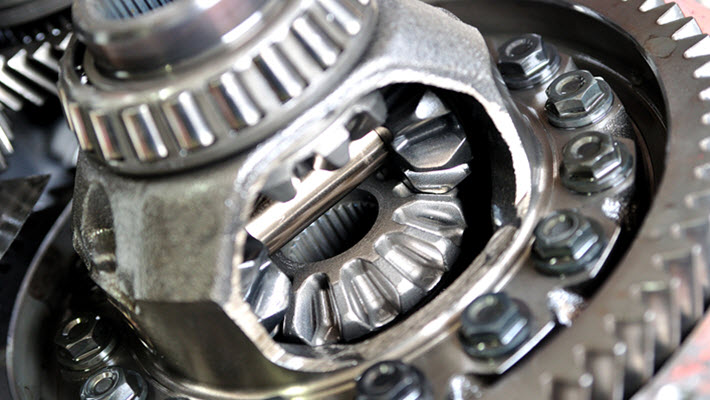The differential is an integral component of Mercedes drivetrain systems that enables wheels to spin at different speeds while still achieving optimal traction, helping to maintain optimal handling, performance, and safety. However, if your Mercedes’ differential fails unexpectedly, its consequences could include compromised handling, diminished performance, and potential safety hazards. It’s essential for Mercedes owners to understand what constitutes a differential and its role, along with the risks associated with its failure and the solutions available.
What is the Mercedes Differential?
The differential is a mechanical device located between your drive wheels. Its main function is to transfer power from its engine to each wheel while accommodating variations in rotational speeds during turns. Mercedes models employ various types of differentials: open differentials, limited slip differentials, and electronically controlled differentials. Each is designed to improve traction, optimize handling, and provide superior performance under any driving condition.
- Open Differential: Open differentials are among Mercedes model’s most essential and commonly employed differential systems. By allowing individual wheels to rotate at different speeds during turns, an open differential helps provide smooth cornering while protecting tires from excessive tire scrubbing. However, they may not provide optimal traction under slippery conditions or when one wheel loses grip, as power will be transferred directly to the wheel with less resistance.
- Limited Slip Differential: The limited slip differential offers an alternative to open differentials by partially restricting speed differences between wheels. Utilizing mechanical and frictional mechanisms, power is transferred more directly to those wheels, offering more traction.
- Electronically Controlled Differential: These differentials take LSD concepts further by adding electronic sensors and control systems. They continuously monitor parameters like wheel speed, acceleration, and steering inputs to find optimal torque distribution between wheels.
The Risks of Mercedes Differential Failure
Faulty differentials in Mercedes models can have severe repercussions for performance and safety, both immediately and over time. A telltale sign of differential failure is abnormal noise from the car’s rear, such as grinding or whining sounds emanating from behind it, poor handling characteristics, or difficulty maintaining stability during turns due to reduced acceleration.
Left unattended, differential failure may even damage other drivetrain components requiring costly repairs while endangering both costs and their occupants’ safety.
Common Causes of Mercedes Differential Failure
Many factors can contribute to the failure of a Mercedes differential. Lubrication deficiencies are a major contributor, from issues like low fluid levels or contamination resulting in excessive friction and heat that accelerate wear on differential components, accelerating wear-and-tear, and eventually, failure of parts.
Other potential sources include worn-out bearings, damaged gears, manufacturing defects, improper installation, aggressive driving, excess loads, or neglect of regular maintenance, which increases risk.
Resolving Mercedes Differential Failure
Addressing Mercedes’s differential failure requires an organized approach, which is best accomplished with professional assistance from knowledgeable technicians. The resolution process typically starts with a comprehensive inspection to identify its source. This usually entails checking fluid levels, condition evaluation, and overall functionality evaluation before suggesting differential repair or replacement depending on severity.
Any damaged components, such as bearings or gears, are replaced with high-quality OEM (Original Equipment Manufacturer) parts of equivalent quality at a differential repair. At the same time, their fluid is drained and replaced to provide optimal lubrication and cooling. In cases where replacement is more cost-effective, such as when its repair exceeds reasonable repair measures, a new or refurbished differential will be installed instead.

Mercedes Differential Repairs by Dell’s Service Center
The differential is a critical component in every Mercedes model’s performance and safety, which is essential in handling, performance, and safety. By understanding its causes and warning signs of differential failure, Mercedes owners can take proactive measures to address it quickly.
Consult the trustworthy automotive professionals at Dell’s Service Center in Green Bay, Manitowoc, and Sturgeon Bay, WI. We specialize in Mercedes models, offering expert guidance and tailored solutions for your situation.
If you need help with your Mercedes differential, contact us today. Our friendly staff will be happy to walk you through our resolution process and help you schedule service as soon as possible. We look forward to assisting you with differential repairs, replacements, and ongoing maintenance to avoid similar problems in the future.
* Mercedes Benz A-Class Car image credit goes to: Wirestock.

